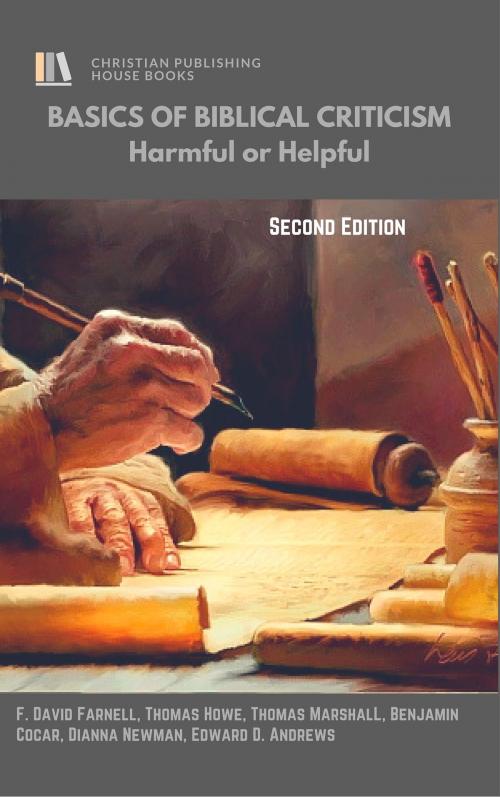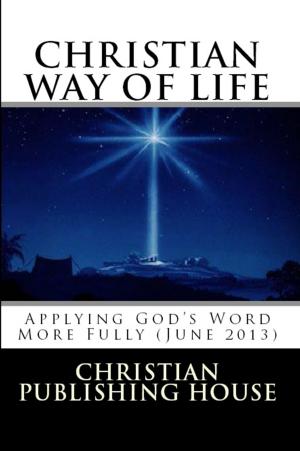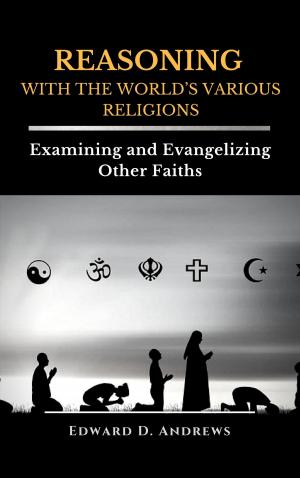BASICS OF BIBLICAL CRITICISM
Helpful or Harmful?
Nonfiction, Religion & Spirituality, Bible & Bible Studies, Old Testament, Criticism & Interpretation| Author: | Edward D. Andrews | ISBN: | 1230001070101 |
| Publisher: | Christian Publishing House | Publication: | May 7, 2016 |
| Imprint: | Language: | English |
| Author: | Edward D. Andrews |
| ISBN: | 1230001070101 |
| Publisher: | Christian Publishing House |
| Publication: | May 7, 2016 |
| Imprint: | |
| Language: | English |
Biblical criticism is an umbrella term covering various techniques for applying literary historical-critical methods in analyzing and studying the Bible and its textual content. Biblical criticism is also known as higher criticism, literary criticism, and historical criticism. Biblical criticism has done nothing more than weaken and demoralize people's assurance in the Bible as being the inspired and fully inerrant Word of God and is destructive in its very nature. Historical criticism is made up of many forms of biblical criticism that are harmful to the authoritative Word of God: historical criticism, source criticism, form criticism, redaction criticism, social-science criticism, canonical criticism, rhetorical criticism, structural criticism, narrative criticism, reader-response criticism, feminist criticism, and socioeconomic criticism. Not just liberal scholarship, but many moderate, even some "conservative" scholars have adopted historical criticism at some level. The authors herein show how adopting any level of biblical criticism by pastors, biblical teachers, students and scholars, will only diminish the trustworthiness of God's Word, e.g., inerrancy. Biblical criticism is extremely flawed, and its attack on the Bible has failed to demonstrate that the Bible is not the Word of God. On this Dr. Robert L. Thomas writes,
Someone needs to sound the alarm when evangelical leaders mislead the body of Christ. A mass evangelical exodus from this time-honored principle of interpreting Scripture is jeopardizing the church's access to the truths taught therein. Whether interpreters have forsaken the principle intentionally or have subconsciously ignored it, the damage is the same.—Robert L. Thomas. Evangelical Hermeneutics: The New Versus the Old (p. 160).
Biblical criticism is an umbrella term covering various techniques for applying literary historical-critical methods in analyzing and studying the Bible and its textual content. Biblical criticism is also known as higher criticism, literary criticism, and historical criticism. Biblical criticism has done nothing more than weaken and demoralize people's assurance in the Bible as being the inspired and fully inerrant Word of God and is destructive in its very nature. Historical criticism is made up of many forms of biblical criticism that are harmful to the authoritative Word of God: historical criticism, source criticism, form criticism, redaction criticism, social-science criticism, canonical criticism, rhetorical criticism, structural criticism, narrative criticism, reader-response criticism, feminist criticism, and socioeconomic criticism. Not just liberal scholarship, but many moderate, even some "conservative" scholars have adopted historical criticism at some level. The authors herein show how adopting any level of biblical criticism by pastors, biblical teachers, students and scholars, will only diminish the trustworthiness of God's Word, e.g., inerrancy. Biblical criticism is extremely flawed, and its attack on the Bible has failed to demonstrate that the Bible is not the Word of God. On this Dr. Robert L. Thomas writes,
Someone needs to sound the alarm when evangelical leaders mislead the body of Christ. A mass evangelical exodus from this time-honored principle of interpreting Scripture is jeopardizing the church's access to the truths taught therein. Whether interpreters have forsaken the principle intentionally or have subconsciously ignored it, the damage is the same.—Robert L. Thomas. Evangelical Hermeneutics: The New Versus the Old (p. 160).















